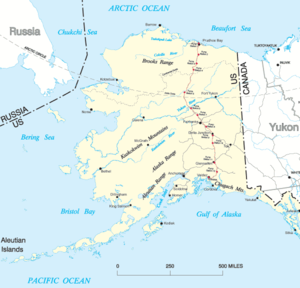(Business Lessons From My 7 Dads)

(Photo Credit: World Wide Weird News)
Have you ever seen someone you love and care about headed down a path that you think will bring them grief?
What do you do? Do you “say your piece” even though you know it will do no good? Do you opt out and not participate? Do you go along for the ride and hope that your instincts are wrong?
My mother married her sixth husband after I was an adult and had my own family. None of us knew much about him and we all felt she was still grieving. But, who is going to tell an adult woman who had built two multi-million dollar businesses that she was rushing into it too fast?
I did learn a valuable business lesson from dad #6.
The wedding was beautiful. My mother asked me to walk her down the aisle. It’s a strange sensation to be the one in that role. The wedding took place at the country club in the gated community where she lived. As a long time member of the community, she had hundreds of friends, family and former clients. They were all invited. The food was superb. The music was wonderful. We all danced. I sang a song I had composed for the occasion.
By all outward appearances it was a huge success.
Outward appearances were misleading.
The wedding was a social event in the small city where Mom lived. I think the paper might have even written about it. But, somewhere in the midst of the salmon and the dinner mints and the balloons and the cake, something was missing.
Tragically, just a few weeks after coming together in a wonderful public display of unity, the marriage was over. My stepfather was from out of state. He’d met my mother on a cruise and they fell in love. But, when it came to the reality of settling down together, he realized something that he’d missed in the whirlwind romance and wedding. My mother was very popular in her town and he was an unknown. I don’t think his ego could take the idea that everywhere they went, to dinner, to the symphony, even just a simple shopping trip, she knew nearly everyone and everyone knew her. . .and he was just “the guy she married.”
He announced the end of their marriage with the words, “The magic is gone.”
Both businesses and people make the same mistakes that my step-father made. Back in the early 1990’s Novell, a computer networking company in Provo, UT bought WordPerfect, an computer application company in neighboring Orem, UT. The merger was touted with great fanfare by both companies. Novell gave up A billion dollars in stock to the two principal owners of WordPerfect. On paper, the match looked pretty good. The companies had no competing product lines. They serviced many of the same customers. Their physical proximity meant that they didn’t even need to worry about moving a bunch of people across the country.
But, just as my mother’s 6th wedding was all about the glitz and not about the reality of merging two different lives, Novell and WordPerfect were destined to fail. Just a couple of years after the big merger, Novell quitely sold off most of the former WordPerfect Corporation to a small Canadian company called Correl. And rather than a billion dollars, they got about ten million for it.
The companies were so interested in having a wedding that they didn’t check to see if they had a future.
It’s not just companies that rush into bad relationships. Several years ago, I was between jobs and had been looking for months. I had a chance to move my family to Wisconsin and go into partnership with a man I didn’t know well. I spent thousands of dollars moving. Then, I bought a house right away. Twenty-five days later the “partnership” was over. I was stuck in Wisconsin with no job, more debt and a house I couldn’t afford.
Had I heeded the lesson of Dad #6, or the Novell/WordPerfect merger, I could have saved myself years of heartache as I worked to dig my way out of the financial hole I was in. I would have been better off to not even go in the first place.
Just because you can do something, doesn’t mean you should. If you expect a relationship to last for years, it’s a good idea to spend more than a few weeks planning it.
Make sure the magic is really there before you risk it being gone.
Rodney M Bliss is an author, columnist and IT Consultant. His blog updates every weekday at 7:00 AM Mountain Time. He lives in Pleasant Grove, UT with his lovely wife, thirteen children and one grandchild.
Follow him on
Twitter (@rodneymbliss)
Facebook (www.facebook.com/rbliss)
LinkedIn (www.LinkedIn.com/in/rbliss)
or email him at rbliss at msn dot com
Mom’s 4th husband was a Minnesota farmer. Minnesota may be the land of 10,000 lakes, but you couldn’t tell that from where we lived.
I was ten and my brother was 12. Home was a huge farm in a tiny town called Wells, MN. I had my first lessons in business on that farm. Lessons that I later forget and then was reminded of in a very painful way.
We had a pig farm.

Oh, there were acres and acres of corn and soybeans and wheat, but hogs were the main crop. They smell just as bad as you might imagine. I complained to my grandfather one time.
Those pigs smell awful!
Rodney, that’s the smell of money. Don’t ever forget that.
That’s a valuable lesson: look at the results not the process to find the true value. But, that was not the lesson that really stuck with me.
Like many (most) farm kids, we participated in the 4H club. I still don’t know what the four h’s stand for, but in our case, one of them stood for hogs. My brother and I were both given a piglet to raise for 4H. Despite their unsavory reputation, pigs are highly intelligent and actually very social creatures. When you have a 4H pig, you are expected to raise it with one goal in mind: a blue ribbon at the fair.
My brother and I worked with our pigs every day. We fed them. We watered them. We cleaned them. And we took them for walks. These activities probably sound fairly normal with the possible exception of the walks. The walks were very, very important.
First, they kept the pig active and in good shape. One of the most important criteria that pigs were judged on was their fat content. You didn’t want fat pigs. You wanted lean pigs. And walking was the way you got them lean.
The second thing the walks did was teach us, and expecially teach the pig how to move together. At the fair, you were expected to “show” your pig by walking it around the pen. There were often a lot of other young kids walking their pigs around the arena at the same time. If you couldn’t keep control of your pig, it disrupted the other participants and it was a sure ticket to the dreaded red ribbon.
Life is busy on a farm, especially in the summer. Taking care of the 4H pig was something we did in our spare time. That was time left over after bucking hay, weeding corn, cleaning barns, weeding more corn, slopping hogs, mowing lawns and finally weeding even more corn.
I remember that as a ten year old, I was having the time of my life. I loved farm life, except maybe the weeding the corn part. And I enjoyed working with my pig. The summer started to draw to a close and soon it was time for the fair. It was time to see if all of our hard work had paid off.
I still love fairs; the smells, the food, the livestock, the midway. It’s a magical piece of a summer ending ritual. And this year I was there showing my pig for the first time. I washed him and burshed down his skin. Looks were also important. . .even if he was a pig.
When it came my time to enter the arena, I did my best to keep my pig under control while avoiding the other participants. Around the ring twice and then back out the gate. The results were announced later that day.
I’d done it. My pig won a blue ribbon. My brother’s pig actually got called back to the arena to be considered for the grand prize purple ribbon. He had to settle for a blue ribbon as well.
And this is the point at which the business lesson kicked in.
See, pigs only get shown at the fair one time. And then they get auctioned off and sold, to a meat packing plant I presume. At the 1975 county fair, my pig sold for $350. That is over $1500 in 2015 dollars. To a ten year old, it was a ton of money. I think I bought a new bike with it. I don’t remember what else.
The other thing I don’t remember is, I don’t remember missing the pig. I’d spent every day with it for months and when it came time to sell it and I realized it would be sent to the slaughterhouse, I don’t remember shedding a tear. A few months later when my mother told me we were leaving Minnesota and the farm, I remember crying, but, not at the fair.
And I have my mother’s fourth husband to thank for that. Pigs were product. They were not pets. I don’t even think I named my pig.
When I went into business, one of the first companies I worked for was WordPerfect. (Back Where It All Began.) I went from there to Microsoft. In both cases, I became emotionally attached to my job. I let my job define who I was. I forgot the lesson of the pig. I forgot to separate my emotions from the product. Leaving WordPerfect and later Microsoft was very much like getting a divorce. I decided at that point that I was never again going to marry a company. (Why Your Company Wants To Marry You. And Why You Should Say No.) I remembered the pig is a product, not a pet.
Rodney M Bliss is an author, columnist and IT Consultant. His blog updates every weekday at 7:00 AM Mountain Time. He lives in Pleasant Grove, UT with his lovely wife, thirteen children and one grandchild.
Follow him on
Twitter (@rodneymbliss)
Facebook (www.facebook.com/rbliss)
LinkedIn (www.LinkedIn.com/in/rbliss)
or email him at rbliss at msn dot com
He’s your half brother.
No he’s not! He’s my whole brother!
Kids who are five years old understand the concept of brothers. They understand the concept of half. They do not understand the concept of half brothers.
Some of my earliest memories are of my brother’s dad. My brother is four years younger than I am. His dad taught me to ride a bike. More importantly, he taught me to ride a motorcycle. Okay, it was a minibike. Basically a bicycle with a lawnmower engine. I remember paiting our house. My parents painted it dark green with light green trim. As a five year old, I wanted to paint it the other opposite.
Strange as it seems, the lesson that stayed with me the most strongly had to do with gumballs.

(Photo credit: Smartvending.com)
My brother’s dad had a box of them in the garage. The box was about 9″ square in my 45 year old memory. There must have been hundreds of gumballs. I was five, my older brother was seven. The perfect age to be getting into stuff. No matter where he hid that box of gumballs, there is a good chance we were going to find it.
We didn’t get into it. We never snuck even a single gumball. We couldn’t. He would know.
I’ve got them all counted. I’ll know if you take even a single one.
I believed him. Of course I believed him. I was five. But, there was a lesson there. It’s tempting to say the lesson is
If you are going to tell a lie, make it a big one.
I’ve thought of that, but it doesn’t really work. If you lie, people will find out. And once you’ve been caught lying it takes a really long time to rebuild the lost trust.
Don’t lie in business. Just don’t do it. . .ever.
No, the lesson that I took away was,
Trust people and they will earn that trust.
Because he did trust us. I don’t remember him going to extraordinary lengths to hide the gumballs. But, I also know that we never went looking for them. I know now, as a fifty year old man that he trusted that five year old boy. And at least in the case of the gumballs, his trust was justified.
One of my business rules, in fact the most important business rule of my Sixteen Management Rules That Make No Sense: Is In The Absence Of Orders Attack. It is predicated on the premise of trust; trusting people to do the right thing. . .especially when no one is watching.
It’s a lesson I first learned from my brother’s dad.
Rodney M Bliss is an author, columnist and IT Consultant. His blog updates every weekday at 7:00 AM Mountain Time. He lives in Pleasant Grove, UT with his lovely wife, thirteen children and one grandchild.
Follow him on
Twitter (@rodneymbliss)
Facebook (www.facebook.com/rbliss)
LinkedIn (www.LinkedIn.com/in/rbliss)
or email him at rbliss at msn dot com
I didn’t like him. None of us did. As a second grader, I couldn’t really articulate it. And in fairness to him, at the time I didn’t even understand it. We moved to Alaska from what would be our home base before and after of Washington state.

Alaska, for a second grader was a great place to live. I remember snow taller than me. I remember icicles on the warehouse next door that were ten feet long. We’d knock them off and then eat them. Yeah, probably not the most sanitary, but I was seven. I remember ice skating on our street. It wasn’t specifically made for skating. It meant that we learned to skate over ruts and around pot holes.
Eventually we moved to the forest outside Fairbanks. Our house had no internal furnace. Heat was provided by a homemade 55 gallon drum that had been converted into a woodburning stove. We also had no interior plumbing. We carried water and used an outhouse. Trips to the bathroom involved boots and a flashlight.
But, it was not a terrible childhood. In fact, there were things that I absolutely loved and certainly lessons that I have learned.
We went fishing. I remember one time especially. My step dad, my mom, my brother and I loaded up the pickup with tents and boats and fishing gear and sleeping bags and food. We arrived early in the day and decided to get out on the water and start fishing before we set up camp. The boats, or the boat actually was rubber. We blew up the boats, loaded them with fishing gear and some snacks and headed out on the water.
I loved fishing. I still do. I also love camping. And I wonder if this trip contributed to that. See, as the afternoon wore on, my mother started to think about the work needed to set up camp and cook dinner. I don’t know if my step father made the decision on the spot, or if he’d planned it all along. But, he decided we were not going back for the rest of our gear.
I think we’ll just rough it.
What are you talking about?
We’ll just make camp with what we have.
I’m not sure if we even had fish to eat that night. I do remember the package of sandwhich cookies that my brother and I split. He and I slept in the rubber raft. I have no idea why he did it, but it has remained with me for years. And the lessons I learned have also stayed with me.
You often don’t have to opportunity to start a project with everything in place. You never, or rarely get to be 100% prepared for a new endeavor. So, what do you do in that case? How do you handle a situation when you don’t have access to all your resources?
I think about that night, sleeping with just my coat for a covering in a rubber boat.
I’m sure we went camping other times, we were a camping family. And yet, it’s that night that I remember. We can do hard things.
In business, it’s not unusual to not have enough information. How do you react? Do you cancel your project until you have optimal situations? Or do you go with what you have?
Rodney M Bliss is an author, columnist and IT Consultant. His blog updates every weekday at 7:00 AM Mountain Time. He lives in Pleasant Grove, UT with his lovely wife, thirteen children and one precious grandchild.
Follow him on
Twitter (@rodneymbliss)
Facebook (www.facebook.com/rbliss)
LinkedIn (www.LinkedIn.com/in/rbliss)
or email him at rbliss at msn dot com
See that tree?
Yeah.
Enjoy it, it’s the last one we’ll see for the rest of the summer.
My brother and I told same joke every year. We lived in Olympia, WA. Olympia looks like this.

We spent summers in Othello, WA. Othello looks like this

While my friends were going to the lake, or the summer fairs, or scout camp, I was going to the swimming pool. . .and that was about it. In fairness we did go the lake on occasion. We helped with the Othello city flout in small town parades around the inland empire.
But, it’s not where we wanted to be.
My parents split up when I was just a baby. My dad stayed involved in my life. I don’t know if it was a little or a lot. It’s not somthing that children of divorce sat around and discussed,
I see my dad for a month during the summer and a week at Christmas. How about you?
But, I didn’t want to be there. As parent I eventually discovered what “bonding” meant. I didn’t see my dad much when I was a baby. I never really bonded with him. It’s not something I’m proud of. I would have liked to have cared about him. I didn’t not care. He was just a guy spent time with.
But, that’s not what he taught me. When I was 14 I asked him to let me be adopted by my stepfather.
He didn’t want to do it. While I might not have bonded to him, he certainly bonded to me. I was his son. He cared about me. He loved me. And I told him that I didn’t want to be his son any more. I don’t have to imagine how he felt, I know how he felt.
He didn’t have to say yes. He had parental rights and could have prevented me from being adopted until I was 18. I’m not even sure I would have still wanted to at that point. He didn’t have to say yes, but he did.
I’ve wondered about that my whole life.
And then he stayed out of my life. I’ve seen him twice since then. Once at my high school graduation, and then once at my brother’s house.
So, what’s this have to do with business?
We don’t always get to do what we want. There are times where we are presented with a terrible choice. A choice where we don’t like either option. At those times, we have an opportunity; an opportunity to reach outside ourselves, to “do unto others.” What do we do? Do we have it in us to make the hard choice? Do we have it in us to put not just the needs, but the wants of other people above our own?
It might be allowing a trusted employee to take a job in another department or another company. Perhaps even giving them a recommendation that will get them the job. Maybe it’s letting a junior collegue give the presentation to the executive committee. Maybe it’s turning down a promotion so your kids don’t have to change schools.
We are all presented at times with the opportunity to do the right thing, or if not exactly the right thing, then the thing that will benefit others more than ourselves.
Can you make that choice?
Can I?
When those situations arise, I remember that when I was a teenager I knew a man who could. And it gives me hope.
Rodney M Bliss is an author, columnist and IT Consultant. His blog updates every weekday at 7:00 AM Mountain Time. He lives in Pleasant Grove, UT with his lovely wife, thirteen children and one grandchild.
Follow him on
Twitter (@rodneymbliss)
Facebook (www.facebook.com/rbliss)
LinkedIn (www.LinkedIn.com/in/rbliss)
or email him at rbliss at msn dot com
Rodney, I need to know if we should let our agents work overtime through the end of the outage.
That’s a Garrett question.
I have lots of things that I’m responsible for at work. In fact, there are some things that I consider myself responsible for that others are not so sure. For example, when we have an outage on our call floor, I’m one of the first people that our Mission Control folks call. We have a group specifically responsible for running an outage call. We occasionally have disagreements over who is going to run an outage call for my account.
This is Gurav with Incident Management. The first thing we need is a ping and a trace from the call floor.
Ah. . .we don’t really need a ping and trace, Gurav. Now Allison, I need to know which line of business is being impacted? How many agents are impacted? How many agents staffed and when did it start?
At that point, Gurav or his counterparts, normally get the hint and let me run the call. Occasionally, it takes another couple of hints.
Is it my mess?
Why would I take responsibility for a mess that someone else is willing to take over?
I know some people who see work as a game of “Hot Potato.” You know, the game, you toss a “bomb,” or a virtual potato around a group of people. The object is to get rid of the potato as quickly as possible, because at some point the timer goes off. Whoever is holding the potato when the timer goes off, loses.
These people spend time figuring out how to make sure a problem doesn’t stick to them. They view each meeting as an exercise in deflecting blame. These people don’t understand why I would willing take responsibility for a problem if I didn’t have to.
Some people think it’s a martyr complex. I’m not sure if that’s even a thing, but it is in my family. The martyr complex is the idea that you create (or adopt) problems so that you can try to fix them. I don’t think I’m that guy. And that’s not why I refuse to avoid responsibility.
The goal of my position boils down to one objective. We make money when we take calls. If we cannot take calls, we don’t make money. It’s that simple. If I thought that letting our Incident Management team could get us back to taking calls quicker, I’d let them run the call. The fact is, I understand our call floor better than anyone. I understand our customers, our clients and our tools.
I don’t want to spend time sending my agents through exercises that won’t make a difference. Using the ping command where you open a command prompt and type
ping www.google.com
will help you figure out if you can get to the internet. The trace command,
tracert www.google.com
will tell you what route your connection has to the internet.
The problem is that from our call floor our agents cannot open a command prompt. And from our call floor, our agents cannot get to Google. So, for most clients, a ping and a trace is a good troubleshooting step. But, from my call floor, it’s a waste of time.
I don’t have time to waste when we are trying to get our agents back on line. Just because someone else is willing to take over a mess, doesn’t mean I’m going to let them. If I give them responsibility for the problem, then I have to give them responsibility for the solution. And they can’t do it as fast as I can.
Yeah, I’ll take that mess.
On your job, how to identify the stuff you can change and the stuff you can’t.
Rodney M Bliss is an author, columnist and IT Consultant. His blog updates every weekday at 7:00 AM Mountain Time. He lives in Pleasant Grove, UT with his lovely wife, thirteen children and one grandchild.
Follow him on Twitter (@rodneymbliss)
Facebook (www.facebook.com/rbliss)
LinkedIn (www.LinkedIn.com/in/rbliss) or email him at rbliss at msn dot com
The question caught me off guard.
Is your job stressful?
Let’s see, my 60-70 hour per week job, where I’m held accountable for downtime but have no control over downtime? That job? The one where I have a demanding client and insane project schedules? That one? The one where downtime has built-in financial penalties that kick in if we drop below 99.95% available?
Was my job stressful?
Other people thought my job was stressful. My boss worried about me. He stressed over my long hours. My VP worried about me. He stressed over how well I felt I fit at the company. My coworkers worried about me. They stressed that their jobs might become like my job.
Some jobs are more stressful than others, of course. I work with guys who did tours in Iraq. One of them used to kick down doors at the point of a gun. That was stressful. Another watched a Humvee roll over on one of the men in his command. That was stressful.
My job requires a lot of travel. Travel can be stressful. But, I’m headed to a hotel room in Richmond, VA., not a battlefield in the middle of a sandbox. I’ll be able to go out to eat at a nice restaurant, or order room service, rather than eat MREs. No one will be shooting at me.
Other people have stressful jobs. I have a friend who is a physician’s assistant. He deals with matters of life and death. That’s stressful.
As I write this, I’m headed East at 35,000 feet. The pilot has the lives of a couple hundred people in his hands. He is responsible for piloting a contraction that weighs several tons and then setting it down gently while travelling a few hundred miles per hour. That’s stressful.
Can my job be stressful? I can get called at any time of the night or day, seven days a week. That can be stressful. My company makes money when we answer the phones. No phone calls? No money. In fact, it’s worse than that since if we are not taking phone calls, we not only don’t get money, we pay penalities. There is a a lot of pressure to keep the phones going. If our system is not available 99.95% of the time, we pay penalities. Just to give you an idea of what that time looks like.
There are 86,400 seconds in a 24 hour day. What’s 99.95%? 86,356 seconds. In other words, if we are unavailable for more than 4 seconds in a 24 hour day, we are into the penalty. Guess who’s job it is to make sure that we don’t use more than those four seconds?
I have over a thousand agents across three time zones. If any one of them cannot get logged into our software, I get a call. If we have a major outage, I’m not just getting one call, I’m getting several. I have a work phone in my home office. During a major outage, I’m on a conference call with my team; asking questions, giving direction, answering questions. I also have a cell phone, of course. During the outage, I’m on my cell phone calling into our client’s bridge; asking questions, getting direction, answering questions. I also occasionally need to reach out to our call floors. I have Skype. At one point I was one four calls at once dealing with two simultaneous outages.
Rodney, we can’t work in the Raleigh outage right now. We have to finish up the Salt Lake City issue.
Okay. Why do we need to do them one at a time?
My team can’t focus on mroe than a single issue at a time.
Right. The client team didn’t want to be pulled in to many directions at the same time. I understand how that goes. That can be kind of stressful.
No.
No, my job is not stressful. Not in the traditional sense that it makes me stressed. I don’t let it.
I understand that there are certain things I can control and a whole lot of things I can’t control. I try to only stress about the things I can control. When I was headed to Washington a couple of weeks ago, (I Made My Mother Cry. . .and I’d Do It Again) I was stressed about arriving on time. I had control over that. I had control over when I left, what route I took, how long I stopped and how fast I drove. (Okay, maybe the highway patrol had some say on that last one.) But, I had control. Knowing that my car was a few hundred miles from breaking down, would have stressed me even more. (Is There Ever A Good Time For A Breakdown. . .YES)
Last week my flight from Louisville back home to Utah was delayed several hours. Instead of getting home at 10:00 pm, I was getting home at 1:00 am. It was inconvenient but not necessarily stressful. I had no control over it. It was going to take the same amount of time if I was stressed or not, so why worry about it?
The key in the workplace, of course is to identify the items you do have control over and those you do not. We’ll talk about that tomorrow.
How about you? Is your job stressful?
Rodney M Bliss is an author, columnist and IT Consultant. His blog updates every weekday at 7:00 AM Mountain Time. He lives in Pleasant Grove, UT with his lovely wife, thirteen children and one grandchild.
Follow him on Twitter (@rodneymbliss)
Facebook (www.facebook.com/rbliss)
LinkedIn (www.LinkedIn.com/in/rbliss) or email him at rbliss at msn dot com
At first we thought she was part of the wait-staff.
Monroe was a regular customer of the Brick Tap House in Louisville, KY, eating here several times per week. There were five of us here tonight. Monroe and Reggie were Louisville locals. The rest of us were from Salt Lake City, UT. A couple of hours earlier as we waited at the baggage claim, Garrett asked me where we should go to dinner.
Definitely the Brick Tap House.
But, I think Reggie wants to take us there later this week.
Trust me, it won’t matter.
We were five guys who worked together. Some of us had worked together for years. Some just a few months. We talked about what guys talk about when they work at a job that shares the same stresses but not always the same location. Two were single. I was the old guy, married 27 years with 13 kids. Mark had been married less time and had two kids. Garrett was recently married.
Gathered around the table, we talked about the food. We decided that despite the reputation for the “drunken chops,” we were all going for the Kobe burger. The chef came out to talk to Monroe.
We talked about sports, although Monroe didn’t knew nothing about any sport. We talked about coworkers; those we liked, those we didn’t. We talked about travel, each picking their least favorite airport. Minneapolis got some votes. I tended to agree with the person who picked Detroit. Any terminal that requires a train to take you to other locations in the same building? I’m not a fan.
It was at this point that she approached our table, and it got weird.
What are boys doing at a table?
Huh?
Well, five guys out to eat, why aren’t you at the bar?
We were not entirely sure what answer she was looking for.
And they’ve got you at the worst table.
How do you mean?
Well, you’re the table right next to the kitchen door. I used to be a waitress in Madison and then I got “demoted” to hostess because, like, whatever. Anyway, a family comes in with a bunch of kids, you know, you put them back in the far corner, but the table right outside the kitchen was the worst.
Two things became obvious. First, she was not with the restaurant. Second, she had been drinking a lot.
What are you guys talking about, anyway?
Airports.
What?
We were picking our least favorite airports.
Really? That’s not like “code” for something else, is it?
No. We were really talking about airports.
You know the airport, I really like?
Hmm?
Atlanta, because everything is really close.
Actualy three things became obvious, our not-waitress was also looking for a friend. She was really looking for something in the conversation that she could latch onto. She switched from extoling the virtues of the Delta airlines hub to looking at random items on the table include the filled out checks. It was a mistake, at least when she reached for my bill.
I quickly pulled it out of her reach and turned it face down.

What’s the matter? Ashamed of your bill?
No. It’s just something I learned from my father, don’t pick up the bill unless you are actually going to pick up the bill.
I’m not sure she got the double meaning.
I think you’re just embarrassed at the tip you left. I saw it. You left a one dollar tip.
There wasn’t a lot to be gained by engaging her in conversation. I was glad she was on the far side of the table.
What are you some sort of cheapskate? I can’t believe you only left a dollar.
I left a tip larger than a dollar, but I don’t think you need to see my check.
Yeah, I think it was $1.23. It’s rude to leave a tip of only a dollar, you know.
Yes, it is. I know something even ruder.
My coworkers were trying to hide their smiles as the non-waitress and I exchanged less than pleasant glances. She finally lost interest in our table and returned to the bar where she alternated between talking to two men, neither of which seemed particularly interested in her.
Well, that was different.
I know. At first I thought she worked here and I thought, “I don’t recognize you.”
You know, Scott always did say this was a pickup bar.
Yeah, we should have sent him a picture.
It became one more crazy story that binds teams together.
My teammates laughed at my quick reaction to her reaching for my check. I hadn’t thought of it before, but it took me right back to being at dinner with my dad. Typically dinners were on a single check. When it arrived, the wait-staff would place it in a neutral location, equidistant from him and me. Neither of us were “that” guy. We were happy to pick up the check when it was our turn, and even a little more.
But, there was a rule. And it was a hard and fast rule:
If you touch the check, you pay the check.
My dad was a professional gambler for much of his life. And like poker, where you have to pay to see your opponent’s hand, if you really wanted to know how much dinner cost, you needed to be willing to pay for the privilege.
Yes, a $1 tip is rude. But, I know something far worse.

(BTW, I left a $3 tip on a $17 tab.)
Rodney M Bliss is an author, columnist and IT Consultant. His blog updates every weekday at 7:00 AM Mountain Time. He lives in Pleasant Grove, UT with his lovely wife, thirteen children and one grandchild.
Follow him on Twitter (@rodneymbliss)
Facebook (www.facebook.com/rbliss)
LinkedIn (www.LinkedIn.com/in/rbliss) or email him at rbliss at msn dot com
It was the right thing to do. . .and we weren’t going to do it. . .for the wrong reason.
Our client wanted us to not just back up their files, but back up their files twice. . .once to Cincinnatti and once to Sacramento. That way if California fell off into the ocean, we’d still have Ohio. Well, I can’t say if it was a good strategy. My job was to figure out how to back up everything twice. . .in real time.
I figured it out. It would cost us about $550 in additional disk space. Andrew, my new Project Manager, wasn’t going for it.
Rodney, we just can’t.
But, it’s the right thing to do.
That’s not what’s important. What’s important is that we are only going to do what’s in the contract.
But, if we put it in the contract and we can’t do it, we’ll pay a penalty. We are protected by simply doing it because it’s the right thing.
It doesn’t matter.
And it didn’t. Project Management wasn’t going to spend $550 that they weren’t contractually obligated to. And they had a good reason. Contracts are important right?
Fences make good neighbors.
Contracts are the fences in our business relationships. If you have a contract, it’s clear what is expected from each group. You don’t have to guess what is expected. You don’t have to wonder what the other side will do.
So, why wouldn’t you want a contract? Wasn’t Project Management correct? Wasn’t it better to insist on a contract?
For much of America’s history, a man’s word was his bond. Have you ever wondered why? Why would calling someone a liar get you killed in some circumstances? Why would someone bind themselves completely on nothing more than a verbal promise?
A contract will require you to do a minimum amount. Simply doing the right thing for people requires you to do the best you can for them. One tells you how little you shoudl do, the other tells you how much you should try to do.
Business contracts are the antithesis of the concept of a person’s word being their bond. “But, it’s not, Rodney. There are people who won’t keep their word.” That’s right, of course. Some of the worst business decisions of my life were made while shaking someone’s hand and listening to them promise something.
And yet, I’d prefer to go through life trusting people than not trusting people. I’d rather be disappointed by trusting someone than missing an opportunity by not trusting them.
I’m not saying you should not protect yourself, your interests and your family. But, when something is the right thing to do, don’t not do it simply because a contract is missing. Do the right thing.
Oh, and Project Management and backing up the files? The Vice President of Infrastructure decided that he’d cover for the client. That perhaps we could spend $550 because it was the right thing to do.
Rodney M Bliss is an author, columnist and IT Consultant. His blog updates every weekday at 7:00 AM Mountain Time. He lives in Pleasant Grove, UT with his lovely wife, thirteen children and one grandchild.
Follow him on Twitter (@rodneymbliss)
Facebook (www.facebook.com/rbliss)
LinkedIn (www.LinkedIn.com/in/rbliss) or email him at rbliss at msn dot com
Well, you head West until you hit the river. Turn South and go about three days and you should start to come into a series of box canyons. The third one leads to a trail. Not more than a deer path, but it will lead to a pass. Head through the pass and keep on West for another couple of weeks and we’ll meet you by the big bend in the river.
Two hundred years ago, when our ancestors stepped out into the wilderness these might be all the instructions someone had to take othem on a journey of hundreds if not thousands of miles.
In one quarter mile use the second from the right lane to take exit 15B and 15C Western Expressway toward Boxer, then stay left at the fork.
If the above sounds like a GPS navigation application, it’s because I recently gave up maps and finally embraced technology. The technology is amazing. Seriously. I have two main options for driving home from work. I can take the shortest route via I15, or I can take a longer route via the Mountain View Corridor. With no traffic, (LOL, sorry I didn’t mean to type that out loud) with low traffic the short route is 45 minutes and the long route is 65 minutes. However, there’s is typically lots of traffic. It’s not unusual for the I15 route to take more than an hour.
My GPS app tells me when I will arrive home. It tells me how long it will take. If I ask the app which route to take it always tells me to go the shortest route. If there is traffic I almost always take the longer route. I use the GPS application to tell me how I’m doing vs the projected route. I figure if I finish within five minutes of the projected route it was worth it.
I’m not a fan of the GPS. Oh, I think it’s brilliant technology. The idea that my phone can not only tell me how to get where I’m going, but that it can redirect me around accidents, traffic and even cops, is pretty cool technology. But, I’m sort of old school in many ways. I carry a pocketwatch. . .
and I use it. I write letters. I like books. And I really like maps.
I think we lose something important when we lose connections with each other.
I’ve spent the last couple weeks working closely with my neighbor. As we were working on my “Iron Man” car, (My Car The Super Hero) one of the things he figured out how to do was to switch the door locks. We were putting the doors from the Red Lexus onto the Gold Lexus. Obviously, I was going to need the locks changed. He’d simply fiddled with it until he figured out how to remove the lock. I was now doing the passenger door. Unfortunately he wasn’t here.
I called him.
He talked me through the process of removing the lock. However, when it came time to do the work, all I had to go on was my own experience and his fairly general directions. I thought about those explorers 300 years ago.
See, my friend didn’t give me instructions on replacing a lock. He didn’t say follow these steps and the lock will come out. He pointed me in the right direction and gave me some things to look for. I had to figure it out.
I’ve used GPS to find my way to a location I haven’t been to. I was once trying to get to the airport in a strange city an dI was pressed for time. The GPS told me to get off on a particular exit. But, it didn’t update quick enough to realize I had exited. It recalculated and me to take the next exit. Because I relied on the GPS I had to travel way out of my way. Had I simply looked at the map, I would have known I was on the right exit and would have saved myself some stress. (I made my plane on time.)
I used to write software for Microsoft. We wrote labs to help people learn Microsoft Exchange. The problem was that following a specific set of instructions doesn’t teach the student. It exposed them to the ideas, but they don’t actually know how to do what you just walked them through.
Recently I took some online Network+ training. I noticed that one module had three nearly identifcal labs. The first lab had very specific step by step instructions. Follow the steps and you can’t go wrong. The second lab was slightly more abstract. The third lab simply stated what you were to accomplish.
I wish I’d thought of that when I wrote my courses.
Sometimes our tools give us too much information. Giving too explicit instructions deprives us of the opportunity to learn, to grow, to use our brains.
The same thing is true in business an life.
Joseph Smith, the founder of the Mormon Church was asked how to governed such a large group of people.
I teach them correct principles and they govern themselves.

That shoudl be your goal as a manager. If you have to tell your staff exactly how to do something, you don’t need a staff, you need a robot. Or you need multiple copies of yourself. Instead, you should should explain to your staff what you want accomplished and let them chart their path. They will surprise you with their ingenuity.
Rodney M Bliss is an author, columnist and IT Consultant. His blog updates every weekday at 7:00 AM Mountain Time. He lives in Pleasant Grove, UT with his lovely wife, thirteen children and one grandchild.
Follow him on Twitter (@rodneymbliss)
Facebook (www.facebook.com/rbliss)
LinkedIn (www.LinkedIn.com/in/rbliss) or email him at rbliss at msn dot com
